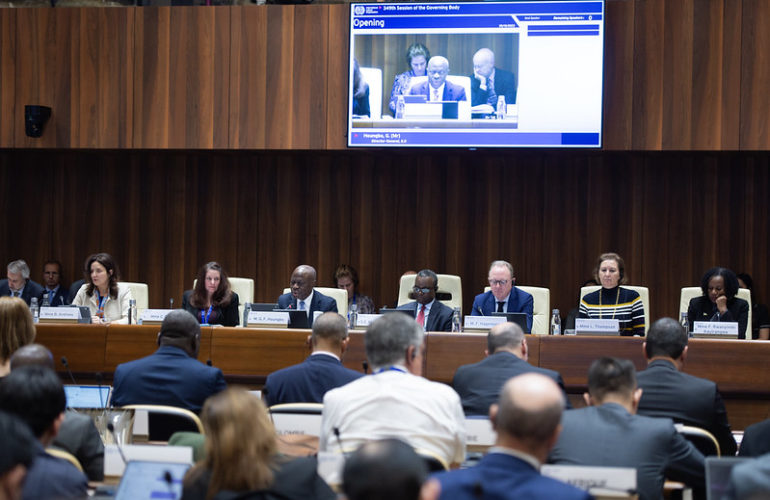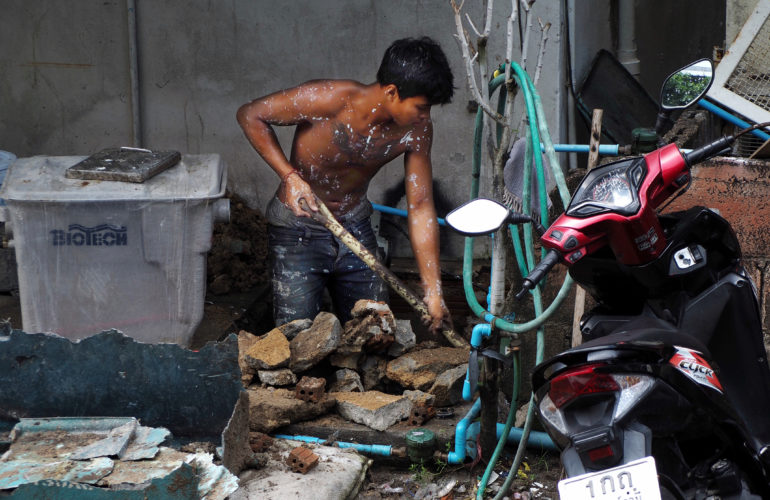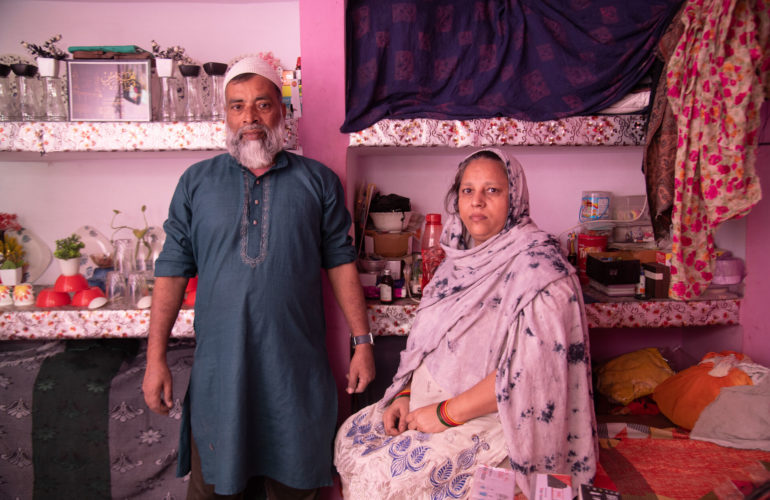ICMC Publishes Tool to Defend the Rights of Filipino Labor Migrants

During an event held in Rome last week, the International Catholic Migration Commission (ICMC) launched a comprehensive research report on institutional frameworks allowing for the protection of labor migrants from the Philippines.
Participants in the event included Vatican officials, members of ICMC governing bodies, journalists, and partners and colleagues in the field of migration services.
With more than 10 million Filipino nationals having emigrated for labor purposes all over the world and an economy largely dependent on their remittances, the Philippines is one of the countries with the most developed legal and institutional apparatus aimed at protecting its citizens working abroad. Yet, a large number of Filipino labor migrants still face exploitation and abuse in their country of destination, often being forced to work for minimal salaries and subjected to physical violence and a lack of access to health care, and other social benefits. Alone in a foreign country and fearful of losing their source of income, these migrants rarely denounce such abuses suffered to local or federal authorities. Even more frequently, they are not aware of the far-reaching procedures and institutions put in place by the Filipino government to protect their rights abroad.
ICMC’s publication, entitled « Labor migration between security and vulnerability: a voyage into grey zones », is the outcome of a study carried out by researchers in Switzerland and in the Philippines, with the collaboration of the Episcopal Commission for the Pastoral Care of Migrants and Itinerant People (ECMI) of the Catholic Bishops Conference of the Philippines. The report provides a detailed overview of the institutional and legal structures – both at the national and the international levels – which grant protection from trafficking and exploitation to the numerous Filipinos who leave their homeland to seek employment overseas. It also provides an analysis of standard employment contracts which are often offered to departing migrants, highlighting ambiguities and the potential for abuse deriving from a lack of regulation.
A tool to raise awareness among departing migrants about the risks they may encounter abroad, this publication also constitutes a valuable resource for social workers, church actors, and civil society organizations advocating to defend and respect migrant workers’ rights at the grassroots level. The report concludes with a set of recommendations addressed to governmental authorities and recruitment agencies and aimed at reducing such risks. It also includes a contact list of non-governmental organizations providing assistance to migrant workers in the Philippines.


